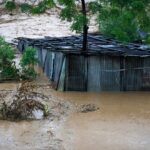Haiti got hit hard with a 7.2-magnitude earthquake in the local morning hours. Hundreds have been reported dead, and there are also reports of thousands injured by the devastating earthquake. This earthquake was more powerful than the earthquake that destroyed Haiti in 2010.
The epicenter of the earthquake was in Petit Trou de Nippes. Currently, phone lines are down in this city, and no immediate news has surfaced. Reports that have come in from other areas report almost 900 homes destroyed and over 700 buildings damaged. Multiple public structures such as hospitals, schools, hotels, and churches have reported damage or collapse.
On August 14, 2021, a devastating earthquake struck Haiti, leaving behind a trail of destruction and loss. The earthquake, which had a magnitude of 7.2, struck the southwestern part of the country, causing widespread damage to buildings and infrastructure.
The earthquake has had a significant impact on the people of Haiti, many of whom were already struggling with poverty and political instability. Over 2,000 people lost their lives in the disaster, and thousands more were injured. The earthquake also caused significant damage to homes, businesses, and critical infrastructure such as hospitals and schools.
The disaster has highlighted the ongoing challenges faced by Haiti, a country that has long been plagued by political and economic instability. The earthquake has compounded these challenges, leaving many people struggling to access basic necessities such as food, water, and shelter.
In the wake of the disaster, international aid organizations have been working to provide emergency relief to those affected by the earthquake. However, the response has been hindered by the country’s difficult terrain and the ongoing COVID-19 pandemic. Additionally, the earthquake has further strained the country’s already-overburdened healthcare system, which is struggling to provide care to those injured in the disaster.
Despite the challenges faced by Haiti, there is hope for recovery and rebuilding. The international community has come together to support the country, providing aid and resources to those affected by the earthquake. Additionally, local organizations and communities have mobilized to provide support to their neighbors and to begin the process of rebuilding.
The earthquake in Haiti serves as a reminder of the importance of disaster preparedness and response, particularly in vulnerable communities. It also highlights the ongoing challenges faced by Haiti and the need for continued support and investment in the country’s long-term recovery and development.







